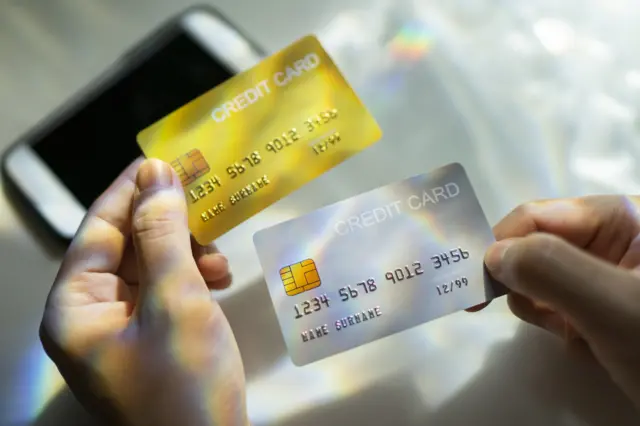Understanding the nuances of financial tools like debit and credit cards is crucial for effective money management. While both serve as convenient payment methods, their implications for credit scores in the United States diverge significantly. Credit scores are pivotal in determining borrowing capacity, interest rates, and even job prospects in some cases.
Consequently, knowing how debit and credit cards affect this financial metric can empower individuals to make more informed decisions. This article delves into the fundamental differences between these two cards and their respective influences on credit scores.
How debit cards work and their influence on credit scores

Debit cards are linked directly to a bank account, enabling users to spend money they already possess. When a transaction occurs, funds are withdrawn instantly from the associated account, ensuring that users cannot spend beyond their balance without overdraft protection. This design fosters financial discipline, as individuals must manage their expenditures within the constraints of their available funds.
However, debit card transactions are not reported to credit bureaus because they do not involve borrowing. Consequently, they do not contribute to building a credit history or improving a credit score. While this may appear as a disadvantage, debit cards can still be instrumental in managing daily expenses without incurring debt. Moreover, they help mitigate risks associated with overspending, offering a secure and controlled payment option.
For individuals with no immediate need to build credit, debit cards can serve as a practical financial tool. However, it is essential to recognize their limitations in contributing to long-term financial goals like securing loans or favorable interest rates, which often require a strong credit history.
Benefits and drawbacks of debit cards
- Benefits:
- No debt accumulation: Spending is limited to available funds.
- Fraud protection: Many debit cards offer robust security features.
- Accessibility: Easy to obtain and use for everyday expenses.
- Drawbacks:
- No impact on credit: They do not build or improve credit scores.
- Limited rewards: Typically, they lack the perks and rewards associated with credit cards.
- Overdraft risks: Fees may apply if overdraft protection is enabled and used.
While debit cards are user-friendly and safeguard against debt, they do not align with strategies to enhance credit scores or build a robust financial profile.
How credit cards work and their influence on credit scores
Credit cards function as a borrowing tool, allowing users to access a line of credit up to a predetermined limit. When a user makes a purchase, they borrow funds from the credit issuer, which must be repaid within a specified period. Timely payments can help avoid interest charges, while delayed payments accrue additional costs.
Credit card activity is reported to credit bureaus, directly impacting credit scores. Payment history, credit utilization, and the length of credit history are critical factors considered by credit scoring models like FICO and VantageScore. Regular and responsible use of credit cards can lead to a higher credit score, providing access to better financial opportunities such as lower interest rates and premium loan offers.
Conversely, misuse of credit cards, such as late payments or maxing out credit limits, can negatively affect credit scores. Maintaining a low credit utilization ratio (ideally below 30%) and making on-time payments are crucial strategies for leveraging credit cards effectively. Credit cards also offer perks such as cashback, travel rewards, and purchase protection, making them attractive for financially disciplined individuals. However, the potential for accruing debt necessitates a cautious approach to avoid financial pitfalls.
Credit card benefits and risks
- Benefits:
- Builds credit history: Positive use improves credit scores.
- Rewards and perks: Offers cashback, travel points, and purchase protection.
- Emergency funds: Provides financial flexibility during emergencies.
- Risks:
- High-interest rates: Can lead to costly debt if balances are not paid in full.
- Negative credit impact: Late payments or high utilization can harm credit scores.
- Temptation to overspend: Access to credit may lead to unnecessary purchases.
Responsible credit card usage can foster long-term financial growth, but it demands vigilance and discipline to avoid adverse effects on credit scores.
Comparison of debit and credit cards in shaping financial behavior
While both debit and credit cards are essential tools, they differ substantially in shaping financial habits and influencing credit scores. Debit cards encourage budgeting and spending within one’s means, as they are directly tied to available funds. This fosters responsible financial behavior, particularly for individuals seeking to avoid debt or who are new to financial management.
In contrast, credit cards play a dual role in financial behavior. They provide the opportunity to build credit, which is vital for securing loans, mortgages, and other financial products. Simultaneously, they require a higher level of discipline to avoid debt accumulation and negative impacts on credit scores. Credit cards also incentivize spending through rewards programs, which can be beneficial but may tempt some users to overspend.
The choice between debit and credit cards often hinges on individual financial goals. For those prioritizing credit score improvement and access to future financial opportunities, credit cards are indispensable. On the other hand, debit cards offer a straightforward solution for managing expenses without the risk of incurring debt, making them ideal for individuals focused on day-to-day budgeting.
Ultimately, combining the responsible use of both debit and credit cards can provide a balanced approach to personal finance. Understanding their distinct roles and impacts ensures that users can align their choices with long-term financial objectives.
Conclusion
The differences between debit and credit cards extend beyond their basic functionality to their broader implications for financial health. Debit cards offer simplicity and security, catering to individuals who prioritize budgeting and avoiding debt. In contrast, credit cards present an avenue to build credit and access financial perks, albeit with greater responsibility.
Recognizing these distinctions empowers users to make informed decisions, leveraging these tools to achieve their financial goals effectively. By striking a balance between using debit and credit cards, individuals can cultivate both short-term financial stability and long-term financial success.
